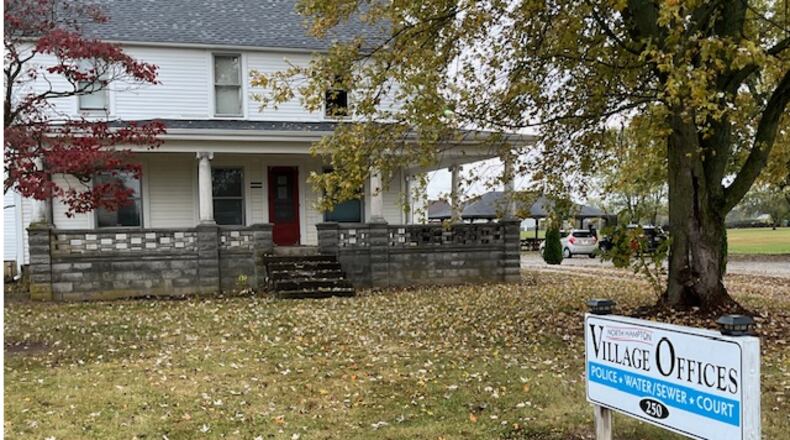House Bill 331, passed Wednesday by an 88-3 vote in the House, would automatically put a question on any Ohio village’s ballot if a once-a-decade audit found that:
• A village failed to provide five out of nine essential services to its residents; and
• Failed to produce at least a singular candidate for each position of the village’s elected position of government.
In addition to Harveysburg (pop. 554), southwest Ohio is dotted with tiny villages that could face such audits. This includes the village of Jacksonburg in Butler County (pop. 55); Clifton in Greene County (pop. 131); Ludlow Falls in Miami County (pop. 175); and Catawba in Clark County (pop. 245).
On the House floor, bill cosponsor Rep. Adam Mathews, R-Lebanon, reminded his colleagues that H.B. 331 wouldn’t automatically dissolve any village, but rather it would automatically give residents of slacking villages additional power.
“This bill has no effect on villages that are already fulfilling these obligations,” Mathews said. “For others, passage of House bill 331 now gives them half a decade to adjust, rise to the challenge and fulfill the obligations they have to their citizens.”
Dave Ashcraft, managing partner of the Ohio Renaissance Festival, testified during committee that despite being taxed by the village, most critical services are provided by others, including sewer, road maintenance, fire & EMS, health department permits and traffic guidance.
“The story of Harveyburg is probably similar in a lot of places,” Ashcraft said. “Small villages simply cannot afford to provide basic services in a timely manner. Services should be objectively measured as H.B. 331 will do. Residents should be given the option to merge with local townships or counties when budgets can’t possibly fund adequate services.”
Faced with this choice last year, Harveysburg voters opted to remain a village.
“I think it’s really good and the residents were informed of the ramifications of surrendering its power as a village,” Harveysburg Mayor Jonathan Funk said after the vote tally. “We would have lost local representation and lose tax revenues.”
Rep. Tom Young, R-Washington Twp., who backed the bill alongside Mathews, told this news organization that he doesn’t want to do away with all villages, but that he definitely wants to give villagers the option to back out when they’re not being served by their local government.
Staff writer Ed Richter contributed to this report.
For more stories like this, sign up for our Ohio Politics newsletter. It’s free, curated, and delivered straight to your inbox every Thursday evening.
Avery Kreemer can be reached at 614-981-1422, on X, via email, or you can drop him a comment/tip with the survey below.
About the Author

